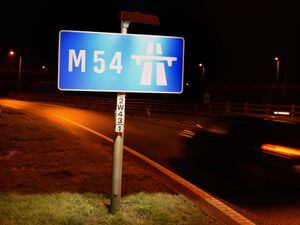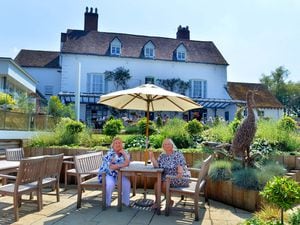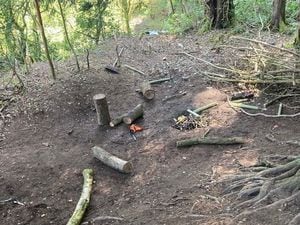Constituency profile: Ludlow - Challenge to predict vote on huge patch
The last election was close across the board, so in a seat which had been volatile over the last few years, you might have expected a close fight.
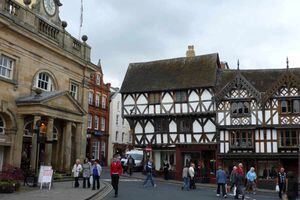
The Liberal Democrats were resurgent in the polls, and must have had a close eye on the Ludlow count. Philip Dunne had sneaked home with a majority of 2,027 votes in 2005 – 4.4 per cent of the vote – and with his opponents riding the crest of a wave of unprecedented popularity, this was expected to be a close call.
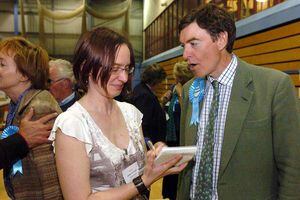
Results from 2010:
PHILIP DUNNE (Con) 25,720
Heather Kidd (Lib Dem) 15,971
Anthony Hunt (Lab) 3,272
Christopher Gill (Ukip) 2,127
Christina Evans (BNP) 1,016
Jacqui Morrish (Green) 447
Alan Powell (Monster) 179
Conservative majority 9,749
Turnout 73.1 per cent
Covering an area of around 640 square miles, Ludlow is among the bigger parliamentary constituencies in England, with a low population density.
It has an electorate of just over 66,000, of whom an above average 73 per cent turned out to vote in the 2010 election. It is another classic Conservative seat, with 97 per cent of its population white British, 27.8 per cent over the age of 65, and 70 per cent Christian.
From its most western point at Bishops Castle, the constituency stretches to Broseley on the outskirts of Telford, to Bridgnorth in the west, and Ludlow in the south. It also houses Clun, Cleobury Mortimer, Much Wenlock, Craven Arms and Church Stretton.
Ludlow town was a parliamentary borough from 1473 until 1885, when it was greatly expanded to replace the old Southern division of Shropshire, and became a new county division. Bishops Castle was among the standalone constituencies before the reorganisation, but as a so-called Rotten Borough was dismissed along with 56 others in the Reform Act of 1832.
Jasper More, who held the seat between 1960 and 1979, held his position for 19 years before retiring from the Commons in 1979. When he died in 1987, it marked the end of a long-established Shropshire farming family which has produced MPs since 1640.
Another well-known ex-MP in Ludlow was Lieutenant Colonel Uvedale Corbett, who stood between 1945 and 1951 and was the constituencys first post-war MP. He was nicknamed Streak, supposedly because he enjoyed betting on the horses, and was known by fellow offices as a long streak of misery when his horse lost. After leaving his role he founded Sun Valley with a consortium of local farmers. He died in 2005 aged 96.
If party bigwigs really did lean in towards their television screens as the returning officer strode onto the stage at South Shropshire Leisure Centre on May 6, 2010, they must have plunged back into their seats with a dejected sigh moments later.
Dunne bucked expectations and overcame what was known at the time as "Cleggmania" to record a majority of 9,749 votes. He won by 20 per cent of the vote from his Liberal Democrat challenger, Heather Kidd.
Such a result, now that the polls are rolling round once again, must look like something of a double-edged sword.
The bookies are comfortable in predicting that Dunne will return to Parliament come May 8, offering very short odds of 1/50 in favour of the understated 56-year-old politician.
The last election taught usthat he is a popular figure in his home constituency. He was brought up on the family farm near Ludlow.
But it also taught us that the vast swathes of south Shropshire countryside covered by the patch can be very difficult to predict.
How do you garner an accurate poll in a constituency that covers more than 600 square miles with more than 66,000 potential voters, but no town containing more than 10,000 people?
Will the people of Bishop's Castle vote in the same way as those in Bridgnorth, 30 miles and 50 minutes away down the B4368?
Can we confidently predict that the people who have grown up in south Shropshire will be swayed by the same policies and principles as those who have moved into the area in later life?
If the Defence Minister is to face a real challenge, Ladbrokes believes that it will come from Ukip, whose candidate David Kelly will be encouraged by odds of 16/1 in a constituency which will not have been foremost in the party's list of target seats.
The collapse of the Liberal Democrat support means that Charlotte Barnes, a councillor who has lived in Ludlow since she was 16, has been pushed out in the betting to 25/1.
Labour's Simon Slater faces a tough battle in a constituency where the party has rarely enjoyed success.
He faces odds of 66/1, meaning he is less favoured than his Green Party opponent Janet Phillips, who is backed at 50/1 for an unlikely victory.
When the Conservatives lost to the Liberal Democrats in 2001, it was on the back of an unprecedented swing into the yellow and on the back of a campaign of localism.
Tory candidate Martin Taylor-Smith was dubbed "the man from Kent" as he was swept aside by local man Matthew Green.
It was no surprise that the next election saw all the main parties field locally based candidates and that model has been followed this time out.
All will be out to gain votes based on key rural issues such as public transport, infrastructure such as broadband and phone connectivity, farming and agriculture and policing.
Keep up with all the Shropshire and Mid Wales election news at www.shropshirestar.com/election
The eventual location of a unified A&E is a key issue all the way across Shropshire but in Ludlow candidates will receive mixed messages.
Bridgnorth residents will surely favour Telford, whereas in Ludlow, Shrewsbury will be the preferred site. It will be interesting to see how candidates handle the issue.
Having been a marginal seat in 2005, in 2010 Ludlow fulfilled its historic role as a safe haven on Conservative support and provided a comfortable victory for the party.
With the party's main challenger losing support across the country, it would be a brave man to bet against another triumph for Philip Dunne this spring – but this is a seat where strange things happen.
Meet the candidates:
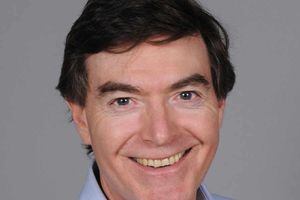
During the course of the current parliament – or at least, the parliament which was dissolved this week – Philip Dunne's star has risen within the Conservative Party.
Having entered parliament as the MP for his home constituency for the first time in 2005, dislodging the Liberal Democrat MP Matthew Green.
Between 2005 and 2010 he supported David Cameron in his leadership campaign, and after re-election five years ago entered parliament as an unpaid assistant government whip in the House of Commons.
In 2012, however, he was elevated to a new role as Minister for Defence Equipment, Support and Technology.
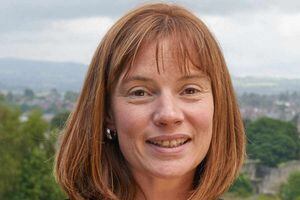
Prior to government, the old Etonian and Oxford graduate had served as leader of South Shropshire District Council.
As well as farming, he has also worked in the banking sector, and was also one of the co-founders of the Ottakers chain of bookshops which was merged with Waterstones in 2006.
The campaign is likely to be fought by a number of local people, and Charlotte Barnes, his Liberal Democrat opponent, is no exception.
A member of Shropshire Council, she has lived in the Ludlow constituency since she was 16.
As well as part-owning a small business, she is a board member of a social enterprise, a school governor, and a parent, and insists that she is not a career politician.
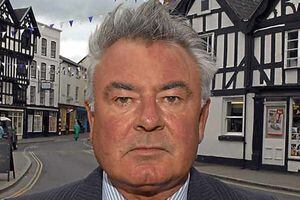
She will hang her campaign on access to services in the local constituency, including healthcare and schooling.
In the purple corner is UKIP's candidate David Kelly. A retired headmaster of a large high school in Worcestershire, he previously taught for almost 20 years in secondary schools in the Ludlow constituency.
His roles included those at Bridgnorth Endowed School, plus others in Shifnal and Bishop's Castle.
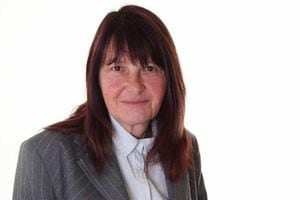
He will be backed in his battle for the seat by Christopher Gill, a former Ludlow MP, who is now president of the Ludlow branch of UKIP having defected to the party in 2006.
Former educational psychologist Janet Phillips will contest the seat for the Green Party.
"My motivation for standing in this election is based on a strong desire to improve the quality of life of all those who live in this area," she said.
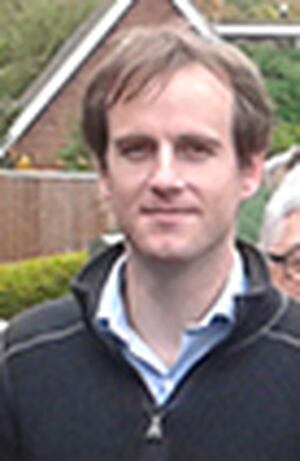
"At the national level, we need to create a fairer and more equal society where vulnerable people are protected," she added. She has spent 27 years working in Shropshire on behalf of children with special needs and children in care, and has focused her early campaigning on cuts which affect families.
Labour is represented in the seat too, but is facing an uphill battle to overhaul a 22,000-vote deficit on the Tory incumbent.
Dr Simon Slater won the right to contest the seat wearing a red rosette earlier this year.
Follow the campaign six days a week in the Shropshire Star newspaper, round the clock on at shropshirestar.com/election where we will carry breaking news and by signing up to our email newsletter.


